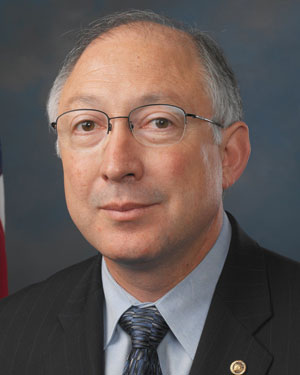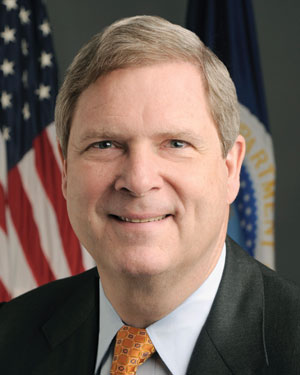Obama's Energy Team




March 9, 2009
BY Erin Krueger
President Barack Obama and his administration have large shoes to fill in the biofuels arena. Leaders in both the biodiesel and ethanol industries cite the administration of President George W. Bush as the most pro-biofuel administration our nation has ever seen. Bush and his administration played a crucial part in the establishment of the renewable fuels standard, which has been an invaluable tool in the expansion of biofuels production.
While this level of support is expected to continue under the Obama administration, the premise behind that support will likely change. Obama and his administration are expected to emphasize the issue of climate change and the role that low-carbon fuels will play in mitigating it. Industry leaders also anticipate that the administration will focus on science and the development of second-generation technologies.
In the past, energy security has primarily driven U.S. biofuels policy. "Energy security is something that has been resonating with policymakers for the past decade," says Graham Noyes, an attorney at Stoel Rives LLP who focuses his practice on biofuels issues. "I think that with this new administration-while energy security will still be a factor-global warming has probably surpassed it in terms of importance."
Even with this change in focus, industry leaders expect the new administration will continue to support the biodiesel industry. "The NBB (National Biodiesel Board) believes that President Obama's alternative energy initiatives will greatly benefit the U.S. biodiesel industry," says Michael Frohlich, director of communications for the NBB. "Throughout the president's campaign, he cited biofuels-and biodiesel specifically-as a key resource to repower America by creating new 'green jobs' using renewable, home-grown fuel that reduces our dependence on foreign oil." In addition, the Obama administration has made it clear they are going to tackle critical environmental issues such as reducing carbon and greenhouse gas emissions, he says.
The administration is expected to act quickly to enact its energy policies. "I think this administration wants to really push the envelope and really push the industry," Noyes says. "The administration really wants to challenge the scientific, educational and business communities to come up with solutions to our energy problems-and come up with them quickly."
Carbon and Indirect Land Use
Carbon will be a primary issue facing the biodiesel industry in the future. "I think there has really been a sea change in administration here," Noyes says. This was demonstrated during Obama's first week in office when he issued a memorandum to the U.S. EPA. The memorandum requested that the agency reconsider a March 2008 decision to deny California's application for a waiver that would allow the state to adopt strict limitations on greenhouse gas tailpipe emissions. "[This also] looks like an early indicator that the Obama administration wants to see innovation from the states," Noyes says.
The establishment of a federal low-carbon fuel standard is listed prominently in the president's energy agenda. Industry leaders agree that a federal standard or carbon cap-and-trade program could significantly benefit the industry. "A low-carbon fuel standard or cap-and-trade scheme could potentially rapidly increase the amount of biodiesel used in the market," says Sara Taylor, executive director of corporate affairs for Renewable Energy Group Inc., a producer and marketer of biodiesel in Ames, Iowa.
Frohlich agrees that a low-carbon fuel standard will benefit the biodiesel industry. "The U.S. biodiesel industry makes a low-carbon fuel that is produced in a sustainable manner, and the National Biodiesel Board is confident that biodiesel can play a significant positive role in the efforts to mitigate carbon emissions and address climate change," he says. "Those [carbon programs] are still big ifs at this point," Taylor says. "But, we know that they are goals that are certainly being discussed-and being discussed at an increased pace."
One issue that is not clear is the administration's position on indirect land use. As part of the proposed rulemaking for RFS 2, EPA must develop a metric to measure indirect land use and life-cycle carbon emissions. "I don't think we know where the administration stands on that," Taylor says. "We know [the administration] is very supportive of biodiesel … but we've not yet heard them address international indirect land use."
As these metrics are developed, it's going to be important for the biofuels industry to actively participate in the process, Noyes says. "The biofuels industry as a whole is going to have to spend a lot of resources and a lot of attention understanding the nitty-gritty of how those regulations are being developed, and participating in that process," he says. "The key issue being when a fuel gets assigned a particular value in those systems, that becomes the truth for that policy or regulation and there is oftentimes no changing it."
"We do need to be very concerned that the science behind indirect land use … is sound, fair and balanced, and doesn't lay blame for all the deforestation issues around the world at the feet of U.S. biofuels producers," Taylor says. It's important for the industry to see more transparency from EPA in how those metrics are being determined, she says.
The Administration
According to industry leaders, any new biofuels policies need to be grounded in sound science, which the Obama administration is expected to emphasize. This focus on science is clearly reflected in the people Obama has chosen to fill administrative postions.
The most notable example was the appointment of Energy Secretary Steven Chu. "There usually aren't Nobel Prize winners in the cabinet," Noyes says. "But, it's a great thing to have one." Taylor says she thinks Chu's experience could be of enormous value to the biodiesel industry. "The one thing about Mr. Chu that I think gives people optimism is that he is a scientist and brings that background to the administration."
The appointment of Agricultural Secretary Tom Vilsack has also received strong support from the biofuels industry. "Secretary Vilsack is unquestionably a positive figure influencing the biodiesel industry," Frohlich says. "His executive experience as governor of a large energy and agriculture producing state, along with his unwavering support of biofuels reflects both his and President Obama's commitment to biodiesel."
Another administrative appointment that demonstrates President Obama's commitment to his energy policies was the selection of Carol Browner as the White House energy coordinator, or energy czar, and the appointment of Lisa Jackson as EPA administrator, which brings a lot of regulatory experience to the administration. The administration's commitment to clean energy and climate change is further demonstrated through Secretary of State Hillary Clinton's appointment of Special Envoy for Climate Change Todd Stern, which reflects the administration's intention to address climate change on a global level.
Industry Wish List
Although leaders in the biodiesel industry are confident the Obama administration's energy policies will prove to be positive, they have identified some specific actions that need to be taken in the short term. Most importantly, the industry would like to see a multiyear extension of the biodiesel tax incentive. "The current year-by-year extension leaves producers without any long-term certainty and less likely to invest in the future," Frohlich says. "A multiyear tax extension, such as the one that was implemented from 2004 thru 2007 would establish certainty in the biodiesel industry, providing the economic confidence to grow in both production and infrastructure." Taylor agrees that a long-term extension of the tax credit would help build investor confidence.
The economy is in a difficult state, Taylor says. She says a flexible loan guarantee program could help plants struggling to make it through this bumpy period. She also says a swift implementation of the RFS would help, noting it needs to be implemented in a way that acknowledges the government's true intentions. "At the same time, we are going to need the Obama administration to hold the line in not granting waivers, and sticking to the requirements of the RFS," Noyes says.
The biodiesel industry has been facing some real economic challenges, which has led to underutilized production capacity, Noyes says. "Hopefully the Obama administration recognizes that we've got underutilized biodiesel capacity in this country and around the world," he says. "We need to put that capacity back to work. We need to use that infrastructure that has already been created even while there is an interest in creating this new next generation of technology."
Erin Voegele is a Biodiesel Magazine staff writer. Reach her at evoegele@bbiinternational.com or (701) 373-8040.
While this level of support is expected to continue under the Obama administration, the premise behind that support will likely change. Obama and his administration are expected to emphasize the issue of climate change and the role that low-carbon fuels will play in mitigating it. Industry leaders also anticipate that the administration will focus on science and the development of second-generation technologies.
In the past, energy security has primarily driven U.S. biofuels policy. "Energy security is something that has been resonating with policymakers for the past decade," says Graham Noyes, an attorney at Stoel Rives LLP who focuses his practice on biofuels issues. "I think that with this new administration-while energy security will still be a factor-global warming has probably surpassed it in terms of importance."
Even with this change in focus, industry leaders expect the new administration will continue to support the biodiesel industry. "The NBB (National Biodiesel Board) believes that President Obama's alternative energy initiatives will greatly benefit the U.S. biodiesel industry," says Michael Frohlich, director of communications for the NBB. "Throughout the president's campaign, he cited biofuels-and biodiesel specifically-as a key resource to repower America by creating new 'green jobs' using renewable, home-grown fuel that reduces our dependence on foreign oil." In addition, the Obama administration has made it clear they are going to tackle critical environmental issues such as reducing carbon and greenhouse gas emissions, he says.
The administration is expected to act quickly to enact its energy policies. "I think this administration wants to really push the envelope and really push the industry," Noyes says. "The administration really wants to challenge the scientific, educational and business communities to come up with solutions to our energy problems-and come up with them quickly."
Carbon and Indirect Land Use
Carbon will be a primary issue facing the biodiesel industry in the future. "I think there has really been a sea change in administration here," Noyes says. This was demonstrated during Obama's first week in office when he issued a memorandum to the U.S. EPA. The memorandum requested that the agency reconsider a March 2008 decision to deny California's application for a waiver that would allow the state to adopt strict limitations on greenhouse gas tailpipe emissions. "[This also] looks like an early indicator that the Obama administration wants to see innovation from the states," Noyes says.
The establishment of a federal low-carbon fuel standard is listed prominently in the president's energy agenda. Industry leaders agree that a federal standard or carbon cap-and-trade program could significantly benefit the industry. "A low-carbon fuel standard or cap-and-trade scheme could potentially rapidly increase the amount of biodiesel used in the market," says Sara Taylor, executive director of corporate affairs for Renewable Energy Group Inc., a producer and marketer of biodiesel in Ames, Iowa.
Frohlich agrees that a low-carbon fuel standard will benefit the biodiesel industry. "The U.S. biodiesel industry makes a low-carbon fuel that is produced in a sustainable manner, and the National Biodiesel Board is confident that biodiesel can play a significant positive role in the efforts to mitigate carbon emissions and address climate change," he says. "Those [carbon programs] are still big ifs at this point," Taylor says. "But, we know that they are goals that are certainly being discussed-and being discussed at an increased pace."
One issue that is not clear is the administration's position on indirect land use. As part of the proposed rulemaking for RFS 2, EPA must develop a metric to measure indirect land use and life-cycle carbon emissions. "I don't think we know where the administration stands on that," Taylor says. "We know [the administration] is very supportive of biodiesel … but we've not yet heard them address international indirect land use."
As these metrics are developed, it's going to be important for the biofuels industry to actively participate in the process, Noyes says. "The biofuels industry as a whole is going to have to spend a lot of resources and a lot of attention understanding the nitty-gritty of how those regulations are being developed, and participating in that process," he says. "The key issue being when a fuel gets assigned a particular value in those systems, that becomes the truth for that policy or regulation and there is oftentimes no changing it."
"We do need to be very concerned that the science behind indirect land use … is sound, fair and balanced, and doesn't lay blame for all the deforestation issues around the world at the feet of U.S. biofuels producers," Taylor says. It's important for the industry to see more transparency from EPA in how those metrics are being determined, she says.
The Administration
According to industry leaders, any new biofuels policies need to be grounded in sound science, which the Obama administration is expected to emphasize. This focus on science is clearly reflected in the people Obama has chosen to fill administrative postions.
The most notable example was the appointment of Energy Secretary Steven Chu. "There usually aren't Nobel Prize winners in the cabinet," Noyes says. "But, it's a great thing to have one." Taylor says she thinks Chu's experience could be of enormous value to the biodiesel industry. "The one thing about Mr. Chu that I think gives people optimism is that he is a scientist and brings that background to the administration."
The appointment of Agricultural Secretary Tom Vilsack has also received strong support from the biofuels industry. "Secretary Vilsack is unquestionably a positive figure influencing the biodiesel industry," Frohlich says. "His executive experience as governor of a large energy and agriculture producing state, along with his unwavering support of biofuels reflects both his and President Obama's commitment to biodiesel."
Another administrative appointment that demonstrates President Obama's commitment to his energy policies was the selection of Carol Browner as the White House energy coordinator, or energy czar, and the appointment of Lisa Jackson as EPA administrator, which brings a lot of regulatory experience to the administration. The administration's commitment to clean energy and climate change is further demonstrated through Secretary of State Hillary Clinton's appointment of Special Envoy for Climate Change Todd Stern, which reflects the administration's intention to address climate change on a global level.
Industry Wish List
Although leaders in the biodiesel industry are confident the Obama administration's energy policies will prove to be positive, they have identified some specific actions that need to be taken in the short term. Most importantly, the industry would like to see a multiyear extension of the biodiesel tax incentive. "The current year-by-year extension leaves producers without any long-term certainty and less likely to invest in the future," Frohlich says. "A multiyear tax extension, such as the one that was implemented from 2004 thru 2007 would establish certainty in the biodiesel industry, providing the economic confidence to grow in both production and infrastructure." Taylor agrees that a long-term extension of the tax credit would help build investor confidence.
The economy is in a difficult state, Taylor says. She says a flexible loan guarantee program could help plants struggling to make it through this bumpy period. She also says a swift implementation of the RFS would help, noting it needs to be implemented in a way that acknowledges the government's true intentions. "At the same time, we are going to need the Obama administration to hold the line in not granting waivers, and sticking to the requirements of the RFS," Noyes says.
The biodiesel industry has been facing some real economic challenges, which has led to underutilized production capacity, Noyes says. "Hopefully the Obama administration recognizes that we've got underutilized biodiesel capacity in this country and around the world," he says. "We need to put that capacity back to work. We need to use that infrastructure that has already been created even while there is an interest in creating this new next generation of technology."
Erin Voegele is a Biodiesel Magazine staff writer. Reach her at evoegele@bbiinternational.com or (701) 373-8040.
Advertisement
Advertisement
Advertisement
Advertisement
Upcoming Events





